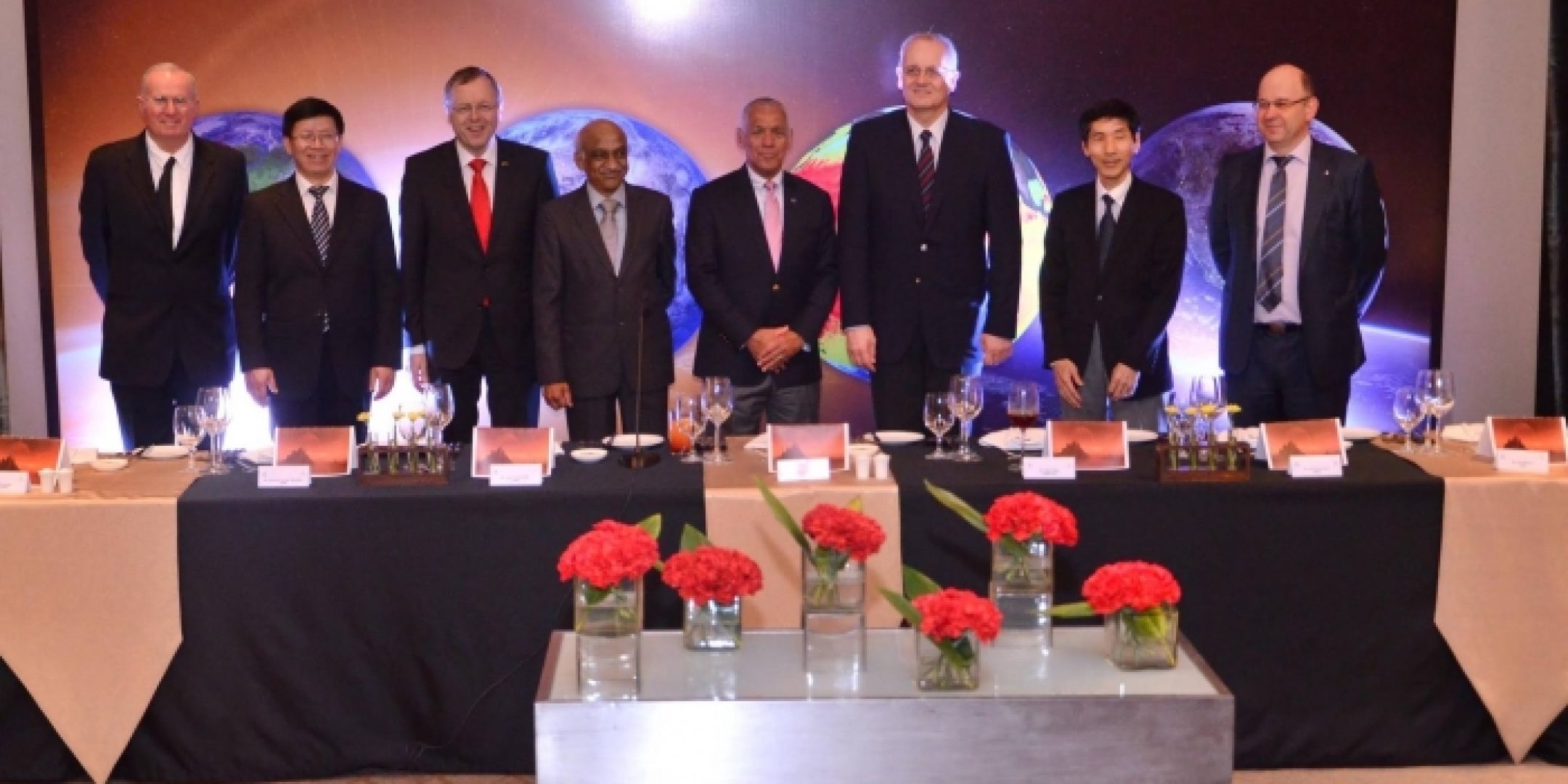On 12 December 2015, in Paris, the COP21 climate conference concluded with a historic agreement to combat global warming. This agreement marked a great success for French diplomacy, hailing the unanimous commitment of nations, corporations and public authorities, and giving the world’s scientists new tools, while international leaders spotlighted the vital role of satellites in studying and protecting Earth’s climate.
During the APRSS in New Delhi, Dr A.S. Kiran Kumar and Jean-Yves Le Gall decided to bring together some of the world’s heads of space agencies to discuss possible contributions in support of the commitments made at the COP21, building on the conference’s international impact. Their meeting achieved a true consensus.
This new initiative follows on from the Mexico Declaration in October 2015, which laid the groundwork for the space agenda of the COP21, stating that “satellite observations are the key element of a global measuring system aimed at verifying the reality of commitments taken in line with the United Nations Framework Convention on Climate Change (UNFCCC)”. As a result, an effective measurement system will be essential to help monitor intended nationally determined contributions. As underlined by the Committee on Earth Observation Satellites (CEOS), “an ambitious long-term goal is operational LEO and GEO constellations measuring greenhouse gases in the atmosphere”. Certain satellites are already paving the way like GOSAT for JAXA and OCO-2 for NASA, and in the near future TANSAT for China, the Copernicus programme’s Sentinel series, MERLIN developed by https://fscience-old.originis.fr/wp-content/uploads/2023/06/GLOC_Oslo_Norway_S2_27juillet2022_web-2-1.jpg and DLR, and https://fscience-old.originis.fr/wp-content/uploads/2023/06/GLOC_Oslo_Norway_S2_27juillet2022_web-2-1.jpg’s MicroCarb project.
The New Delhi Declaration also calls for evolving space-based operational tools combining in-situ measurements and increased computing resources. To this end, space agencies will need to develop new technologies to be flown in space and encourage their research community to contribute actively with new models. Success will depend above all on cooperation to cross-calibrate instruments and cross-validate their measurements, in order to achieve an international, independent system for estimating the global emissions based on internationally accepted data. Through this Declaration, participating space agencies are working toward a global framework to move forward on these matters. The Administrator of NASA, Charles Bolden, participated to this meeting.
For more information : https://presse.cnes.fr/en/new-delhi-declaration-space-agency-heads-reaffirm-commitment-monitor-greenhouse-gases-emissions








